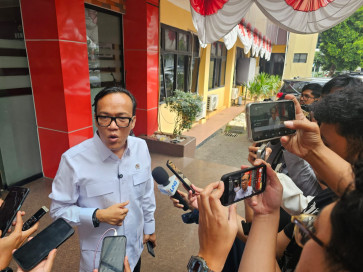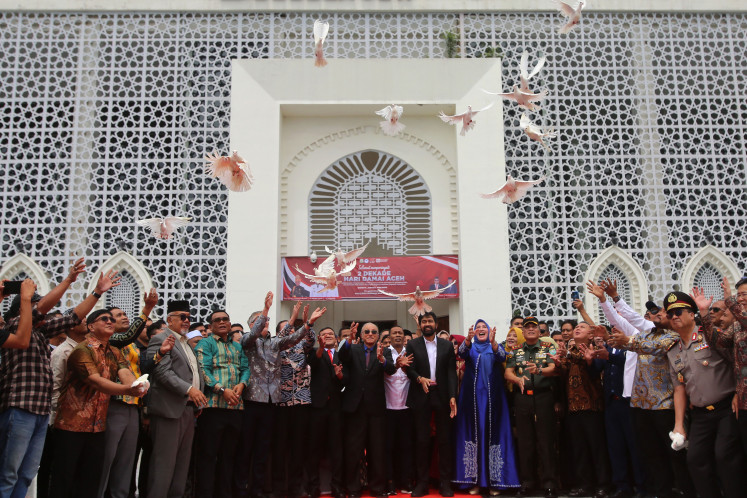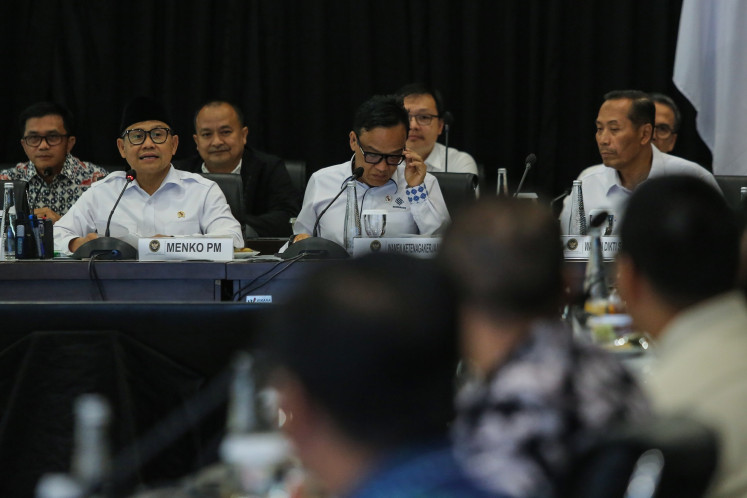Popular Reads
Top Results
Can't find what you're looking for?
View all search resultsPopular Reads
Top Results
Can't find what you're looking for?
View all search resultsWhy decentralizing human rights is ineffective
Protection of civil and political rights and the progressive nature of economic, social and cultural rights fulfillment in this country should be set in the context of the stateâs legal obligation to all individuals under its jurisdiction
Change text size
Gift Premium Articles
to Anyone
P
rotection of civil and political rights and the progressive nature of economic, social and cultural rights fulfillment in this country should be set in the context of the state's legal obligation to all individuals under its jurisdiction. Under Indonesia's human rights law, this obligation is embedded primarily in the government.
Under the 1945 Constitution and the regional government laws, local governments have authority over most matters except foreign policy, defense, security, the judiciary, national monetary and fiscal policy and religion. Consequently, our current serious problems of discrimination, poverty and religious intolerance originate largely in the decentralization policy established since the post-New Order era. This argument stems from the fact that the government has initiated the third phase of the national human rights plan of action, from 2011 up to 2014, under Presidential Regulation No. 23/2011.
Such a plan of action enshrines, in line with the decentralization policy, a two-level committee (local and national) to fulfill the state's duty to protect human rights. The committee's main tasks include harmonizing human rights-based legislation, applying human rights norms and standards and disseminating human rights. Instead of enforcing human rights through judicial mechanisms, the government has used a rather soft policy in determining our national human rights policy by integrating human-rights values into public services.
Based on the normative framework, one would simply argue that national human rights protection by and large depends on the condition of local politics and resources, which might vary from one place to the next. Given such an assumption, one may question the effectiveness of 'decentralizing' human rights norms and values for the sake of social justice for all.
It is undeniable that decentralization currently needs fundamental reform, particularly regarding the distribution of power vis-Ã -vis central and local governments and problematic regional elections. These issues play a significant role in determining the success of our national human rights plan of action. Corruption, local campaigns, discriminative culture and unhealthy procedural democracy at the local level may halt the implementation of human rights norms and standards.
Furthermore, the current 'human rights decentralization' to a certain extent contributes to the emerging voice in human rights particularity. Control over natural resources and political domination have been shrouded by elites who misuse local particularities as a basis to overcome the equality principle among all citizens in all provinces. This phenomenon could be seen during the debate on Aceh's local flag.
From a wider perspective, in terms of the application of equality for all, the relation between central and local governments should be synergistic, so we can avoid problems such as the eviction of Sampang's Shiites or the prolonged closure of GKI Yasmin church in Bogor.
Above all, the process of decentralizing human rights originated with our commitment stated in the Vienna Declaration and Program of Action adopted by the World Conference on Human Rights in Vienna on June 25, 1993. This UN declaration urges governments to increase considerably the resources allocated to programs aimed at the establishment and strengthening of national legislation, national institutions and related infrastructures, which uphold the rule of law and democracy, electoral assistance, human rights awareness through training, teaching and education, popular participation and civil society.
Consequently, I would argue that our national human rights plan of action, or should I say the human rights decentralization project, hereafter must emphasize three elements: rule of law and democracy, electoral assistance and human rights awareness.
On the other hand, the expected regional government bills (comprising the law on local government, regional elections and village government) should be able to answer the need for the aforementioned key elements.
Furthermore, regarding the particularities at the local level, the UN declaration reaffirms that 'while the significance of national and regional particularities and various historical, cultural and religious backgrounds must be borne in mind, it is the duty of states, regardless of their political, economic and cultural systems, to promote and protect all human rights and fundamental freedoms.'
Thus, a common comprehension of and commitment to human rights protection at the national level, from which the local level derives, is imperative. As a result of this, the human rights decentralization project shall initially delineate the duty of the central government to establish human-rights protection norms and standards, which the local governments subsequently have to enforce.
The writer is a research staffer at the Human Rights Research and Development Agency under the Law and Human Rights Ministry. The views expressed are his own










